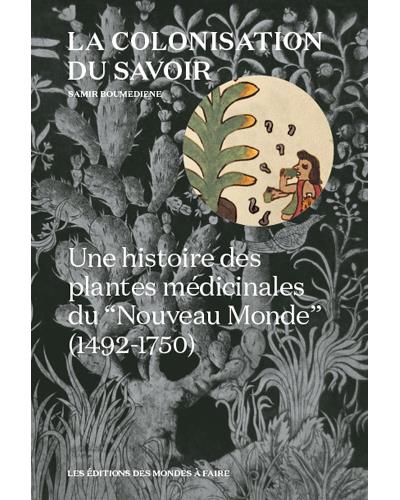27 POCIONES

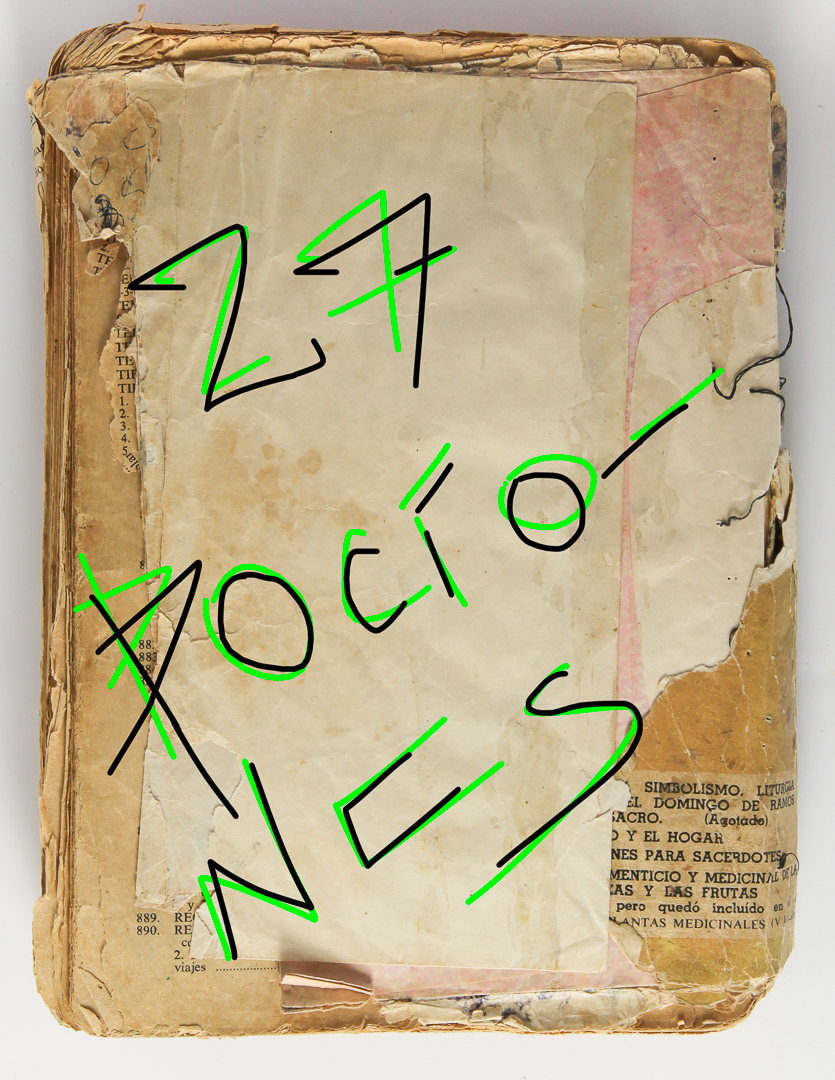
FR
Le livre des plantes medicinales est un ouvrage de vulgarisation de médecine homéopathique, appartenant à ma grande mère, écrit par le médecin et prêtre Eugenio Arias Alzate, edité vers 1962. C’est un recueil de vulgarisation scientifique médicinal, des petits remèdes à réaliser chez soi, utiles pour une grande partie de la population colombienne à une époque où la médecine peinait à arriver aux territoires ruraux.
27 potions guérisseuses, correspondant au nombre de lettres de l’alphabet en espagnol. Ce travail artistique rejoint d’une part l’histoire de ma grande mère, femme guérisseuse de ses 12 enfants en territoire rural. D’autre part une histoire collective de la sorcellerie. Les femmes sorcières, habitant les campagnes, étaient souvent proches de la terre et de la guérison des corps malades à travers les plantes. Il se trouve qu’avec la privatisation et la dépossession des terres, le savoir médicinale a été enlevé aux femmes et aux pauvres.
En Europe et Abya Yala, la chasse aux sorcières, l’expropriation terrienne des paysan.nes et l’appropriation des savoirs médicinales des femmes et des indigènes ont tout.tes un lien d’interdépendance. C’est pourquoi l’histoire de vulgarisation médicinale rejoint aussi la question de la colonisation des savoirs, à partir de 1492, à une époque où les indigènes d’Abya Yala et les esclaves noirs étaient porteurs des savoir des plantes. Les Européens s’approprient de leurs savoirs au même temps qui sont interdits les rituels de guérison en Abya Yala.

ES
El libro de las plantas medicinales es una obra de divulgación de la medicina homeopática, perteneciente a mi abuela, escrita por el médico y sacerdote Eugenio Arias Alzate, publicada hacia 1962. Se trata de una colección de divulgación de la ciencia medicinal, de pequeños remedios para hacer en casa, útiles para gran parte de la población colombiana en una época en la que la medicina se esforzaba por llegar a los territorios rurales.
27 pociones curativas, correspondientes al número de letras del alfabeto español. Esta obra artística une, por un lado, la historia de mi abuela, una mujer curandera de sus 12 niñes en las zonas rurales. Por otro lado, una historia colectiva de brujería. Las mujeres brujas, que vivían en el campo, solían estar cerca de la tierra y de la curación de los cuerpos enfermos a través de las plantas. Con la privatización y el despojo de la tierra, los conocimientos medicinales fueron arrebatados a las mujeres y a les pobres.
En Europa y Abya Yala, la caza de brujas, la expropiación de tierras a los campesinos y la apropiación de los conocimientos medicinales de las mujeres y les indígenas están interrelacionados. Por ello, la historia de la divulgación medicinal también está vinculada a la cuestión de la colonización del conocimiento. En 1492 les indígenas de Abya Yala y les esclaves eran portadores del conocimiento de las plantas. Los europeos se apropiaron de sus conocimientos al mismo tiempo que se prohibían los rituales de curación en Abya Yala.
IN
The Book of Medicinal Plants is a popularized work of homeopathic medicine, belonging to my grandmother, written by the doctor and priest Eugenio Arias Alzate, published around 1962. It is a collection of popularized medicinal science, small remedies to be made at home, useful for a large part of the Colombian population at a time when medicine was struggling to reach the rural territories.
27 healing potions, corresponding to the number of letters of the alphabet in Spanish. This artistic work joins on the one hand the history of my grandmother, woman healer of these 12 children in rural territory. On the other hand a collective history of witchcraft. Women witches, living in the countryside, were often close to the earth and to the healing of sick bodies through plants. With the privatization and dispossession of land, medicinal knowledge was taken away from women and the poor.
In Europe, the witch-hunt, the expropriation of land from the peasants and the appropriation of the medicinal knowledge of women and indigenous people are all interrelated. This is why the history of medicinal popularization is also linked to the question of the colonization of knowledge, starting in 1492, at a time when the indigenous people of America and slaves were the bearers of plant knowledge. The Europeans appropriated their knowledge at the same time that healing rituals were forbidden in South America.

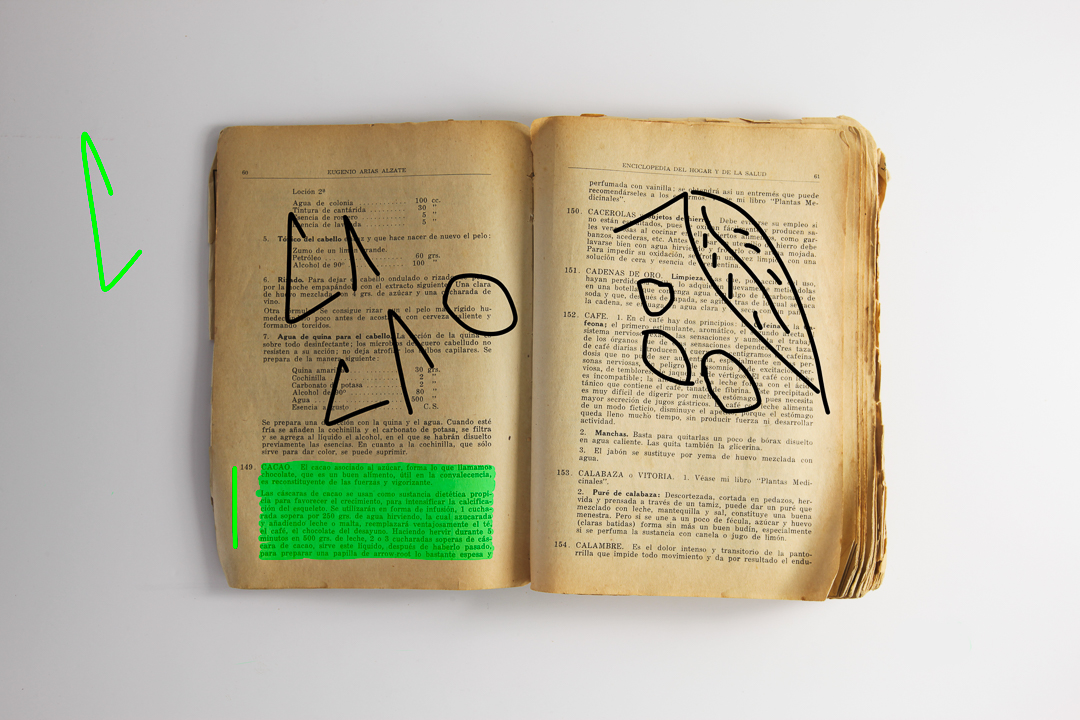
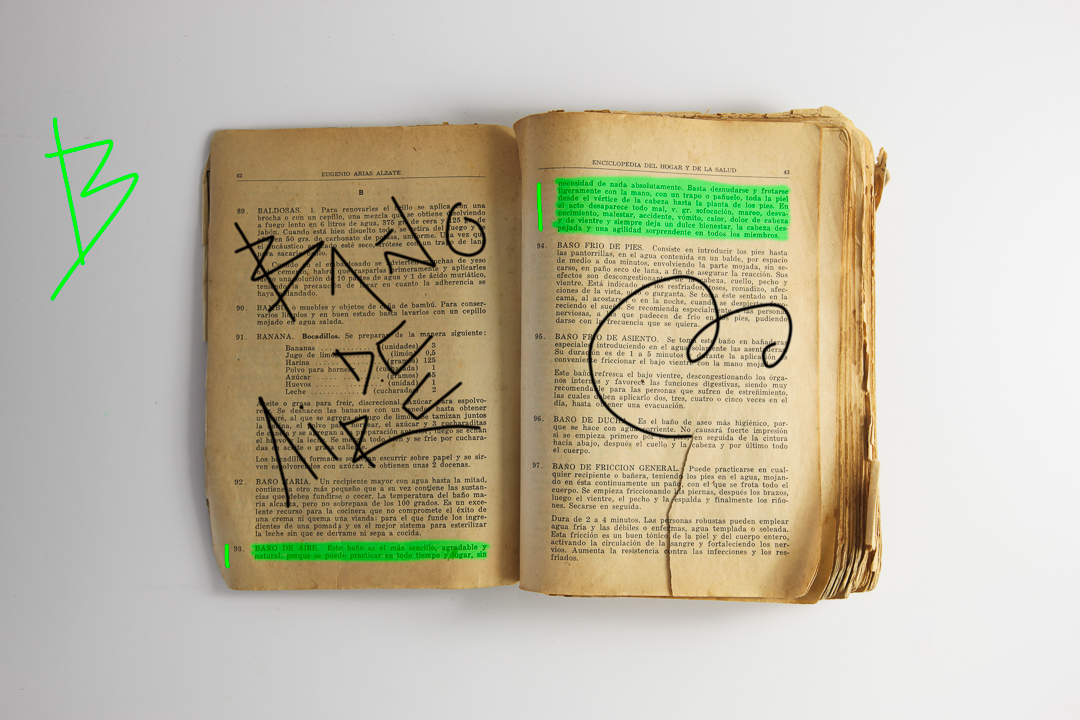



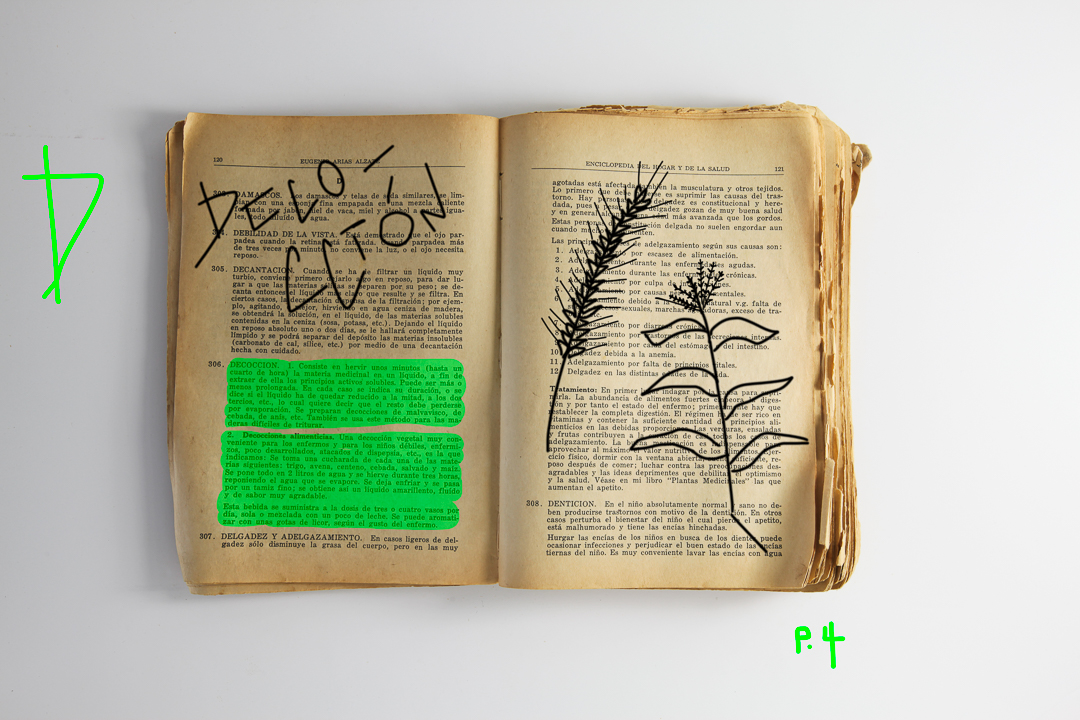

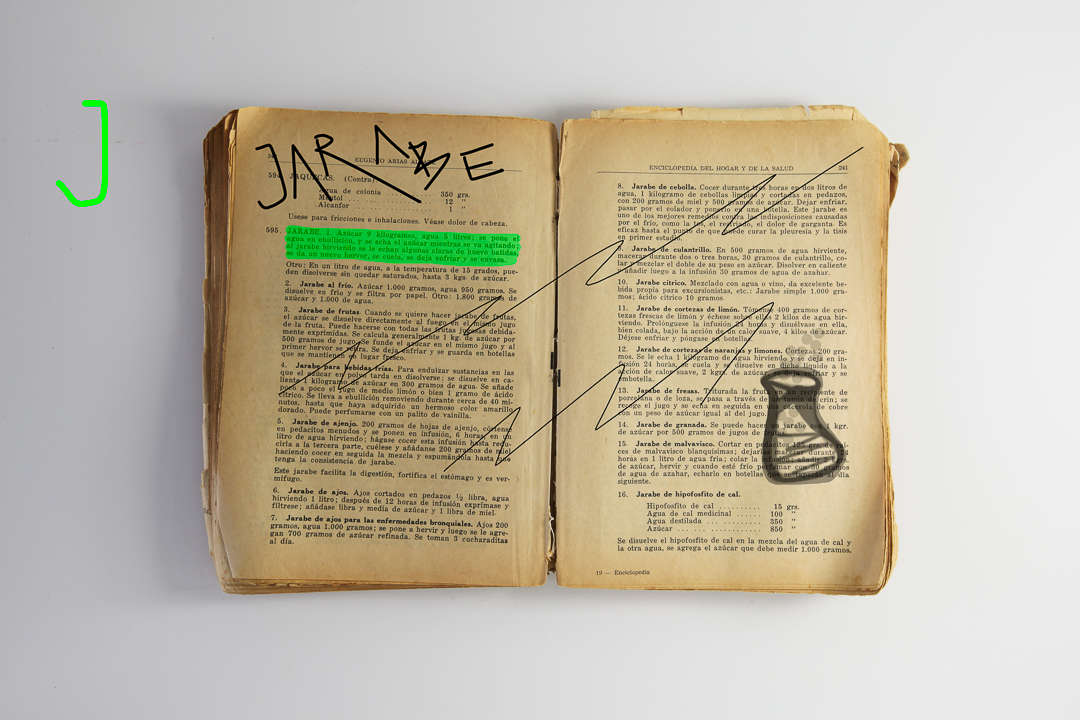



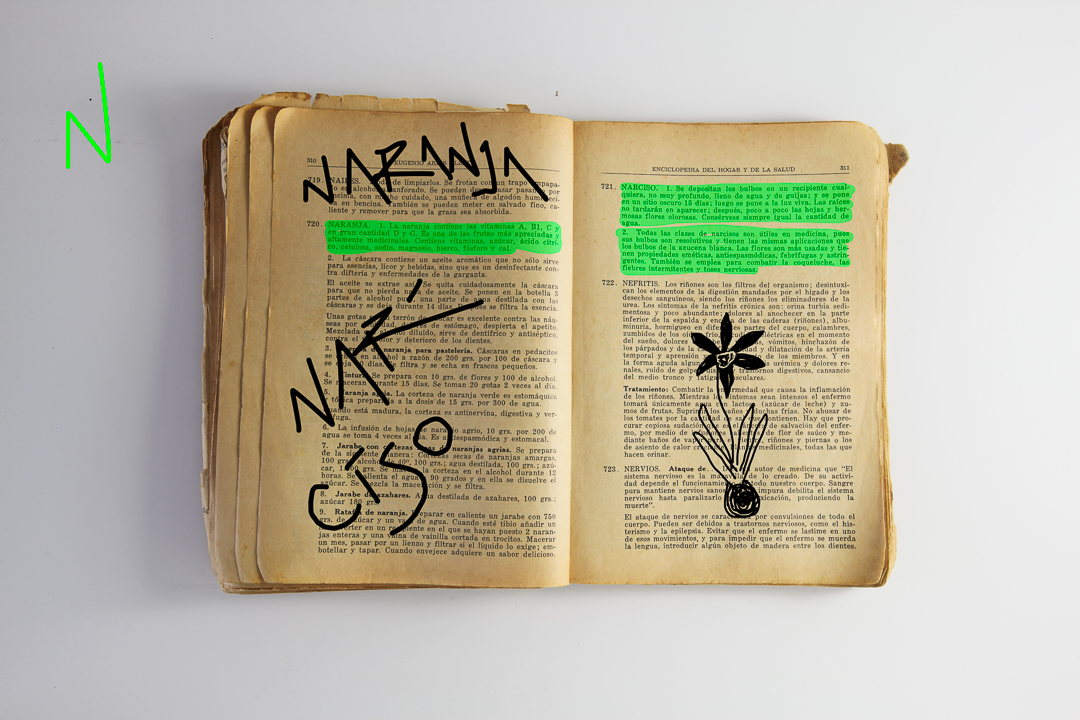
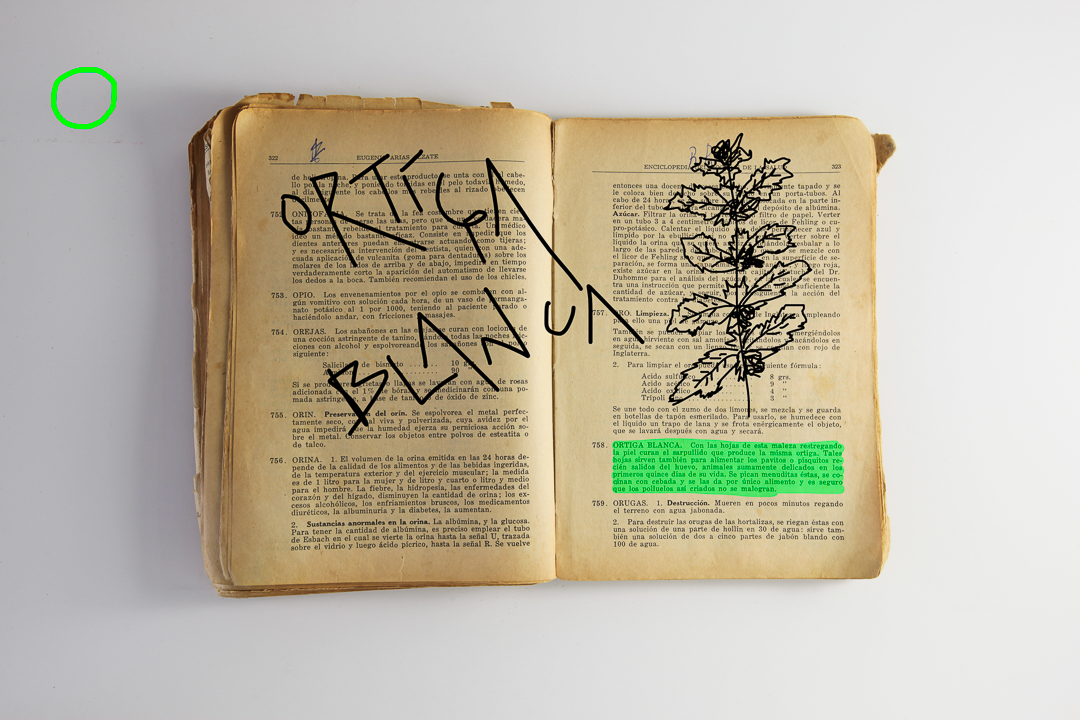







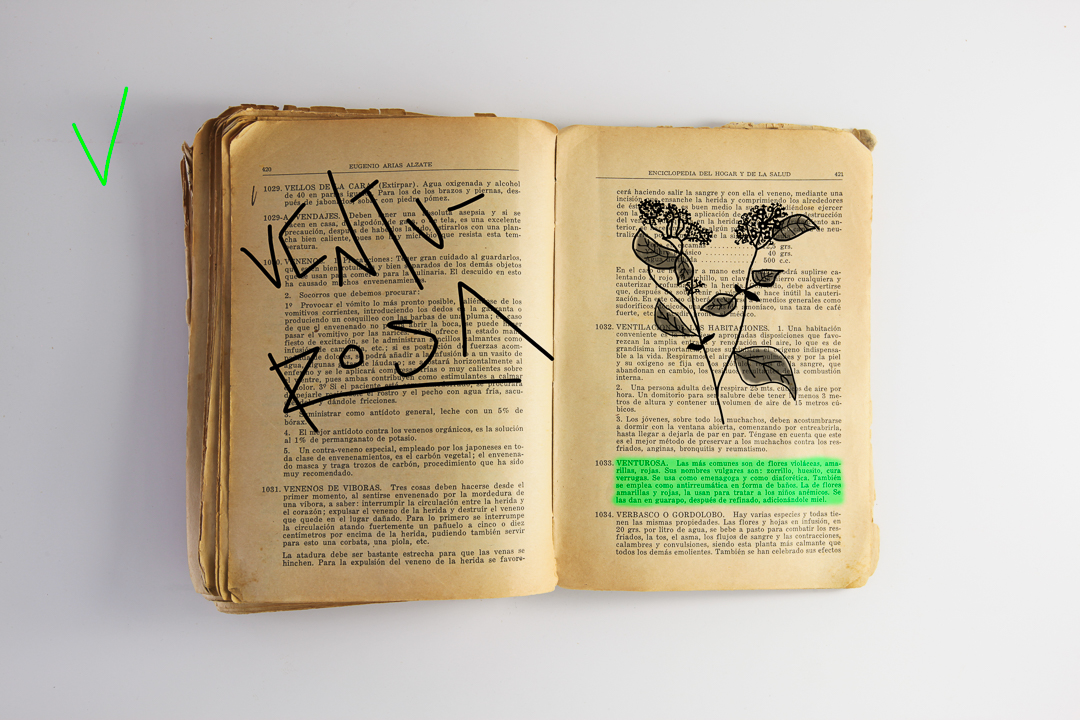
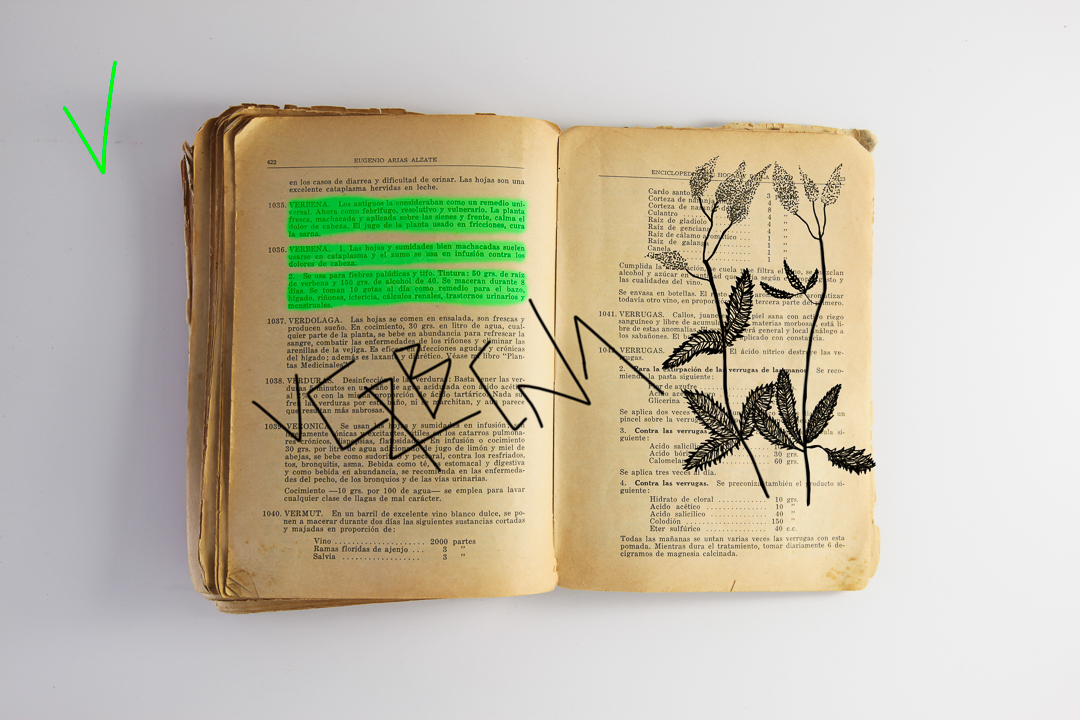

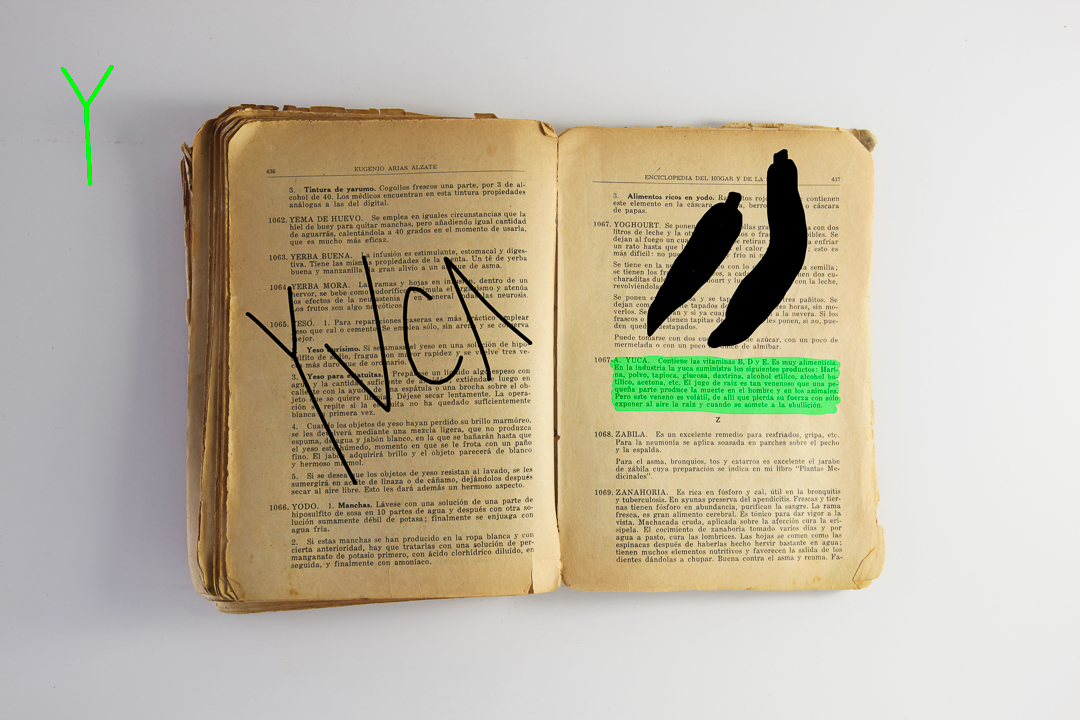


27 Pociones, Recettes Homéopahtiques du livre de ma grande mère, 27 cartes postales, 2021
FANZINES / COLLECTIVES



